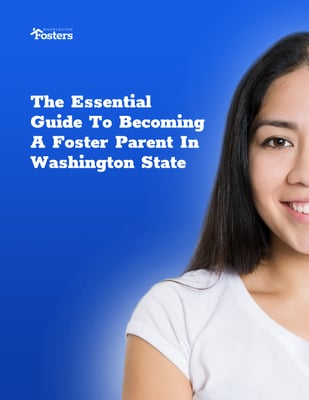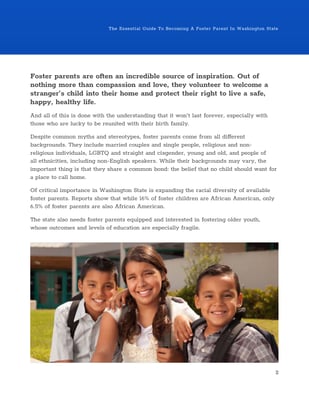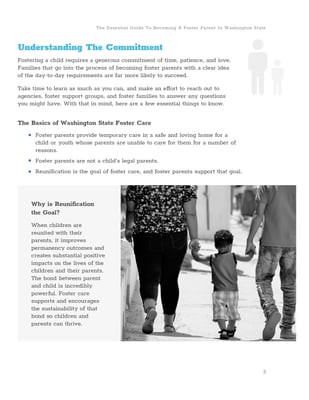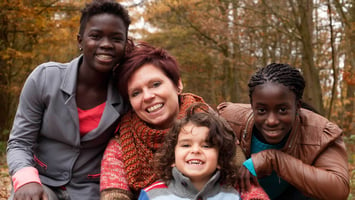When Mary McGauhey first began fostering, things didn’t exactly get off to an auspicious start.
“My first day as a foster parent I woke up with double pneumonia,” she says. “Then the first day of school, our foster child refused to get on the bus to his special school, so I was chasing him in the snow in my robe and boots with a blanket wrapped around me.”
Despite the rocky first few days, however, Mary stuck with it. And now, 25 years later, she has a lot of experience to share.
On The Front Lines
In addition to being a foster parent, Mary answers phone for Fostering Parents Association of Washington State (FPAWS), which often puts her in a prime position to hear about what’s working and what’s not in the foster system. While she finds a lot of good, there are some things that stand out as a problem.
Download Now: The Essential Guide To Becoming A Foster Parent In Washington State
“The department has never done a good job of figuring out how to handle a situation when the foster parent disagrees with what the department’s plan for a child is,” she says. “What I’ve seen happening is that the department digs their heels in and defends their decisions.”
This failure, Mary believes, has a ripple effect throughout the fostering program, particularly when it comes to recruitment and retention.
“It really turns foster parents and relative caregivers away,” she says, “and the sad part is that for every time we lose a foster parent, we don’t just lose that foster parent, we lose everybody they ever talked to about their experience.”
Advice For Beginners

For potential foster parents coming into the system, Mary recommends going into it with the right expectations.
“The thing that I’ve seen over the years is that new people coming into foster care have an idealized perception of what it is or what it’s really like,” she says. “They don’t always have a really good understanding of how to work as part of a team to benefit the child.”
Mary also has some practical advice, which she herself received when first starting out as a foster parent.
“If someone is considering being a foster parent, they really need to have an understanding of why they’re doing it,” she says. “They need to hold that thought the whole time.”
To help potential foster parents hold onto that thought, Mary suggests doing what she did at the beginning.
“When we licensed for the first time, the licensure had us sit down and write a letter to ourselves about why we were doing what we were doing,” she says. “There were a couple of times when I was at the point of being frustrated and my case manager would ask, ‘Do you need to read the letter again?’ ”
Still Going Strong
In the end, there’s a reason Mary has been fostering for 25 years and counting through the highs and lows: the children.
“I have totally enjoyed being a foster parent,” she says. “I came into it because my daughter was a premature baby and we wanted to give back. We felt we learned so much raising her that when she went away to college, we didn’t want to let those skills go to waste.”
Our thanks to Mary for speaking to us about her experience. To learn more about life as a foster parent, download our free resource The Essential Guide To Becoming A Foster Parent In Washington State.








